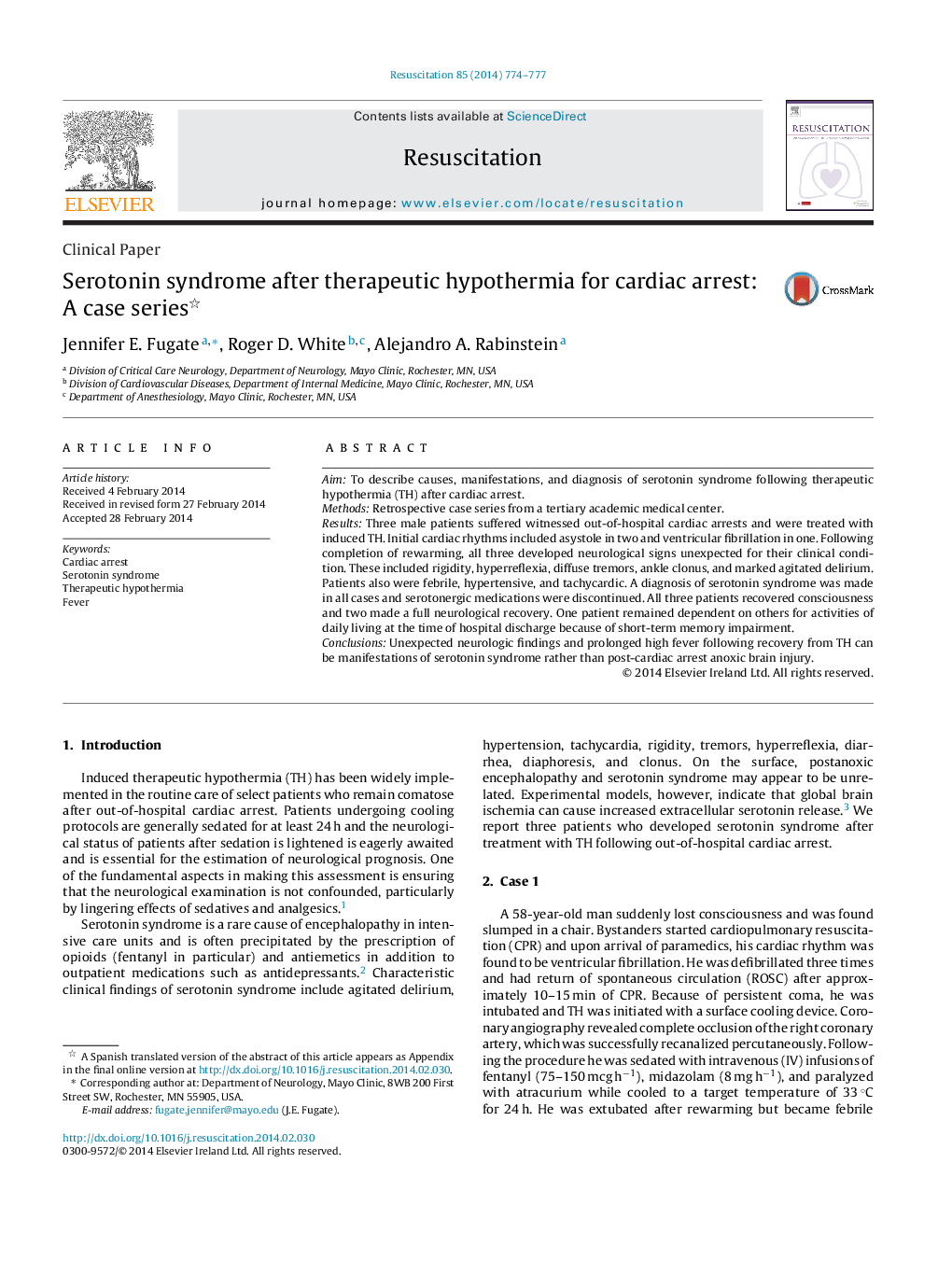| Article ID | Journal | Published Year | Pages | File Type |
|---|---|---|---|---|
| 5998621 | Resuscitation | 2014 | 4 Pages |
AimTo describe causes, manifestations, and diagnosis of serotonin syndrome following therapeutic hypothermia (TH) after cardiac arrest.MethodsRetrospective case series from a tertiary academic medical center.ResultsThree male patients suffered witnessed out-of-hospital cardiac arrests and were treated with induced TH. Initial cardiac rhythms included asystole in two and ventricular fibrillation in one. Following completion of rewarming, all three developed neurological signs unexpected for their clinical condition. These included rigidity, hyperreflexia, diffuse tremors, ankle clonus, and marked agitated delirium. Patients also were febrile, hypertensive, and tachycardic. A diagnosis of serotonin syndrome was made in all cases and serotonergic medications were discontinued. All three patients recovered consciousness and two made a full neurological recovery. One patient remained dependent on others for activities of daily living at the time of hospital discharge because of short-term memory impairment.ConclusionsUnexpected neurologic findings and prolonged high fever following recovery from TH can be manifestations of serotonin syndrome rather than post-cardiac arrest anoxic brain injury.
